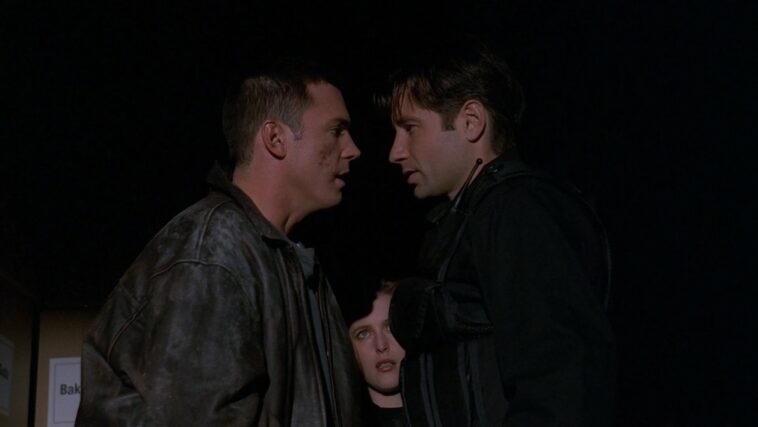I began this month by pointing out how The X-Files generally encourages us to believe in a human soul, citing the regular appearances of ghosts and other immortal spirits. There is one notable exception that I can think of. In Season 4’s ‘Small Potatoes’, Mulder says: “maybe it’s other people’s reactions to us that make us who we are”. In other words, identity is not innate.
I’m not sure I would champion this as a philosophy of life, since I wouldn’t want my identity to be dependent on an outside observer (“hell is other people” and all that). Nonetheless “maybe it’s other people’s reactions to us that make us who we are” is a golden quote for the X-Files fandom.
The fandom has made the show its own, from actually influencing the choices of the writers (I’m thinking specifically of MSR-related events) to creating a culture of fanfiction and head-canon, where the choices of the writers are secondary to idealistic fans’ imaginations. Anyone who spends much time in the fandom’s corner of Twitter will know that it is pretty inundated with head-canons. They might appear delusional to some, but they are joy and comfort to others. I am curious about a specific subset of head-canons that involve the queering of otherwise cis-het presenting characters. Why look for queerness where there is none? Or is The X-Files more gay than it first appears?
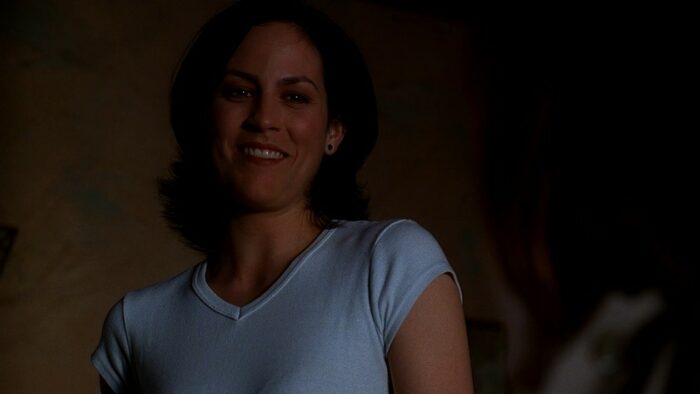
To understand queerness in The X-Files, I should first explain what I even mean by “queer”. It is usually synonymous with being LGBT+, however “queer” goes beyond the mere fact of having an LGBT+ label, instead being a reflection of the ways in which LGBT+ people experience the world. It was defined by bell hooks as “…the self which is constantly at odds with everything else”. Queerness is about rebellion and subversion, not only the absence of convention but the deliberate rejection of it. Therefore, to ask where queer people see themselves in The X-Files is not to ask which same-sex pairings have the most chemistry, or to look for tired stereotypes; it is about searching for where The X-Files challenges the status quo, what in-universe binaries (i.e. good/evil) exist, and how they are dismantled. Who is most at odds with the world of The X-Files?
I will partially credit Sex Education and Gillian Anderson for the increasing ratio of young queer people who enjoy The X-Files. They, through creativity and sheer stubbornness have carved out their own corner of the fandom. They now uphold and pioneer the canon of queer head-canons, from the harmless (see “the bisexual head-canon” below) to the most chaotic and reactionary (such as the Scully/Stella Gibson ship, or head-canoning Mulder as transgender).
But to be clear, queering The X-Files is not a newfangled hobby of the Gen Z youth. In fact I’d argue (albeit based on observation rather than experience) that the Mulder/Krycek shipper base was more active in the 90s than it is now. Some viewers have always appreciated a little homoerotic subtext and have always turned to fanfiction to make it known. However, amongst the mounds of male/male X-Files fanfic (especially from the 90s) you’ll rarely find any written by an actual gay man. In terms of queering The X-Files, this fanfiction is at best a bit superficial and at worst downright fetishistic. Moreover, pairings of Mulder and Krycek or Skinner and Krycek or even Mulder and Skinner and Krycek are probably all the more appealing because these characters are very masculine-presenting, and historically straight (i.e. have on-screen relationships with women) so they make an acceptable form of queerness.
Something cannot be truly queer if it does not come from queer people. That being said, the fact that The X-Files is a cis-het product doesn’t mean that the fan theories and head-canons I am going to discuss are unfounded, nor am I discrediting the few examples of LGBT+ representation in the show.
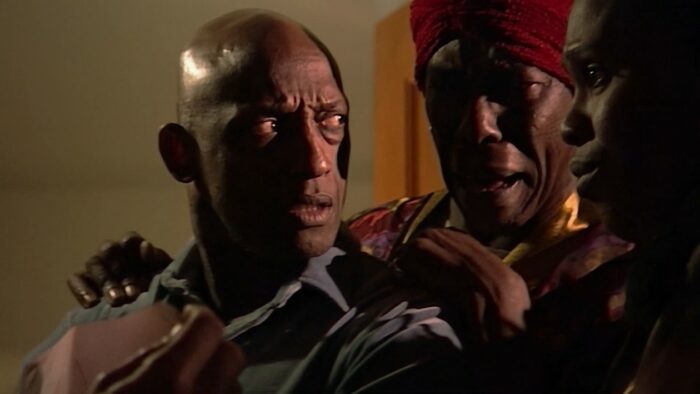
In my opinion there are three main reasons why someone might want to queer The X-Files: a) comfort, as in queer people who project themselves onto their favourite characters, b) aesthetics, as in two characters of the same gender who make an attractive couple, and c) rebellion, as in the more the show tries to get me interested in cis-het nonsense the harder I will look for queer loopholes.
All three of these can either stem from or lead to legitimately well-founded observations of character. For example, the interpretation of Mulder and Scully as being on the asexual/aromantic spectrum, in respone to their unusual or completely absent approaches to romance. Or that Krycek’s longing for the life that Mulder has might be equivalent to longing for Mulder himself. Or that Mulder had a past sexual relationship with Senator Matheson, as a read on their dynamic, Matheson’s unexplained fondness for the young agent, and the rare use of Mulder’s first name.
Before I look deeper at head-canons, I want to assess the canon and determine why it has inspired all three forms of head-canon. In the early seasons of The X-Files, I remember being endeared by the way that a relationship between a man and a woman could be close and meaningful without being sexual. It was unusual, even having grown up in the 21st Century, for me to see an on-screen partnership that hadn’t caved to heteronormativity. Even later on, episodes like ‘Arcadia’ and ‘Dreamland’ seem to mock the heterosexual lifestyle, or can be interpreted that way. Unfortunately, Mulder and Scully only defied expectations for so long.
Perhaps I shouldn’t have been surprised—the nuclear family had been Mulder’s raison d’etre from the start (and motherhood soon became Scully’s). But I fell in love with a show about the outcast and downtrodden and…spooky, and was ultimately disappointed that it landed on such a conventional arc. AJ Black referred to Mulder and Scully’s “coupling” as “inevitable” but in my opinion the fans demanded it much more than the narrative did. Moreover, I have noticed that the MSR gets described as “unconventional” by shippers—the MSR might have been celebrated as an unconventional romance 30 years ago, but conventions have caught up and it’s no longer accurate to say that about a straight white couple.
If I was being really harsh I’d say that the mythology eventually amounts to Mulder having sperm and Scully having eggs—the Essence cold open takes the idea that Mulder and Scully are “perfect opposites” and makes it about their sexes. So much for subverting gender roles!
It would have been more unconventional if they had started and ended as friends. Sex is not the same as character development, and just because it happened slowly doesn’t make it deep. I reject the idea that a man and a woman (even if both straight) who are close emotionally must also be close physically. Arguably, the development of the MSR represents too narrow a view of love, and is too ignorant of platonic or queer intimacy.
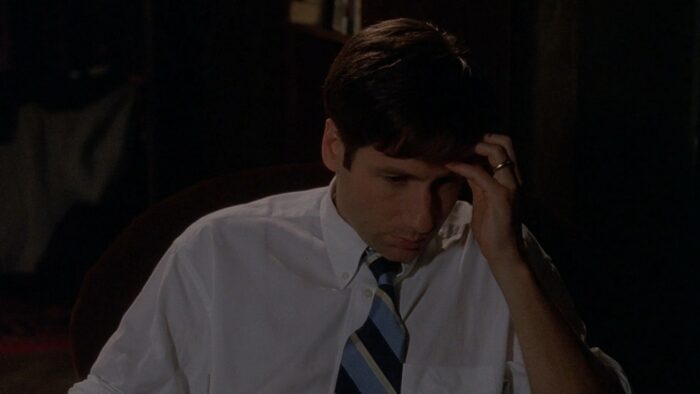
As a response to this heteronormativity, some head canons are purely iconoclastic. There exists a niche set of memes about Agent Mulder being transgender that are a middle finger to the (infrequent but upsetting) cases of transphobia in the show. Mulder’s wedding ring—seen in flashbacks—has had heads spinning, as most other evidence suggests that Mulder was never widowed or divorced. My favourite theory as a result of this is that it may have been an unofficial symbol of his commitment to a male lover (since they would not have been able to get married). Absolutely any gap and ambiguity will be filled—if it can be queered, it will be queered.
People commonly head-canon straight-presenting characters as bisexual, either for comfort or aesthetics. The bisexual head-canon is universally prevalent, because, I suspect, it is unfalsifiable. In The X-Files it is most commonly applied to Alex Krycek and Monica Reyes, although some people adopt an “everyone is bi until proven otherwise” perspective (unfortunately, this paints bisexaulity as a liminal phase, and not a real sexuality in its own right).
Of course there are enough reasons to read sexual attraction into Krycek’s interactions with Mulder (I have never kissed the cheek of my mortal enemy, but that’s just me). But aesthetics aside, I think part of the reason why Alex Krycek is so compelling to myself and other queer people is that unlike Mulder and Scully, his arc does not hinge on a desire for a nuclear family. He exists outside of the FBI/Syndicate dichotomy, and outside of the good/evil binary. He is beholden to nothing, and rebels against all patriarchal figures and systems—I think Krycek is the answer to my earlier question of who is most at odds with the world of The X-Files. To kill him off in the very same episode that the MSR baby is born…that really stung.
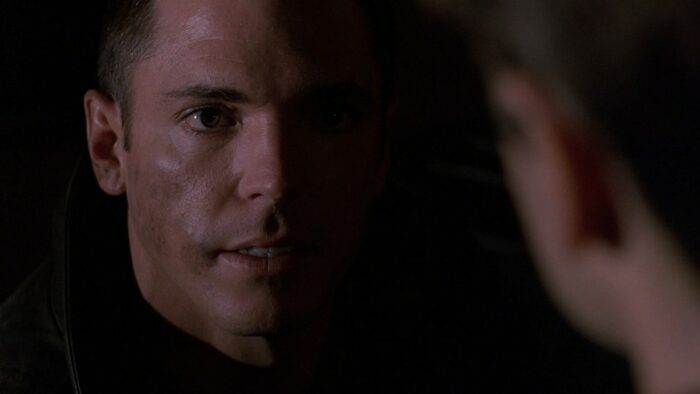
Is there a problem with looking for queerness where there is none? Is it the same as giving the show too much credit? In fairness, the same show that gave us ‘Gender Bender’ also gave us Steve and Edy (stereotypes perhaps, but fittingly defined by their courage) and it did, however clumsily, attempt to right a wrong in ‘Mulder and Scully Meet the Were-Monster’ when Mulder describes transgenderism as “not nuts” (thanks, I guess). These brief pockets of representation are pretty surface-level, and the difference between a queer and a straight story must reflect fundamentally different life experiences.
But there are plenty of reasons why a queer person could identify with the characters of The X-Files. Perhaps I should be telling you to go and watch real queer TV by queer writers (and sure we should definitely all do that) but I am queer and I want to watch The X-Files. To other queer people out there—if you head-canon Scully as aromantic, or Langly as genderqueer, or you see your transmasc future in Fox Mulder—you are as entitled to this wonderful show as anyone else.

